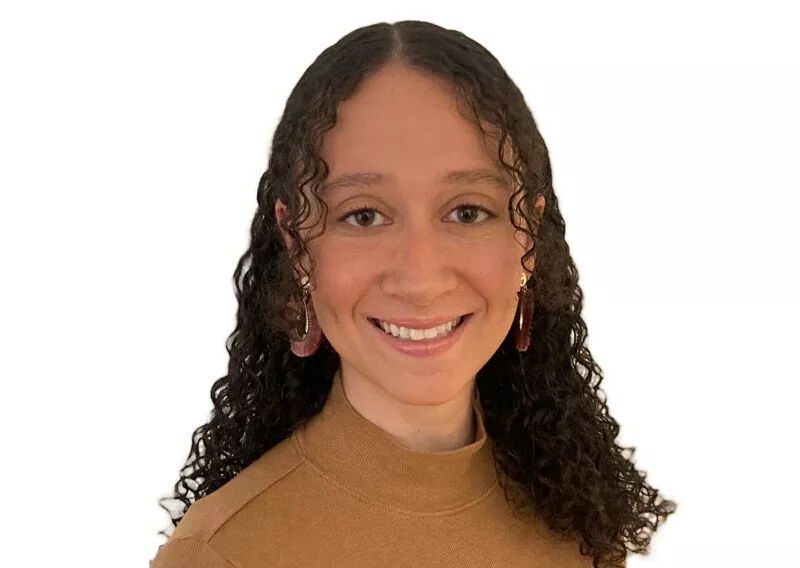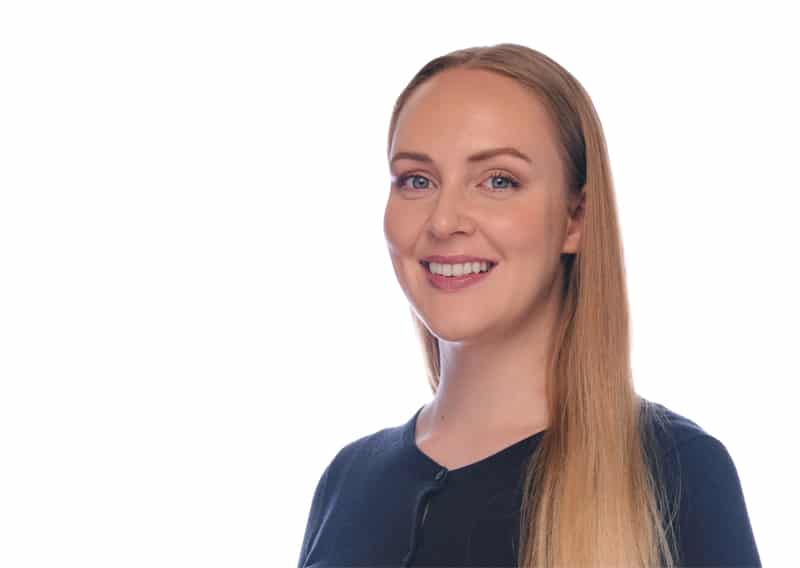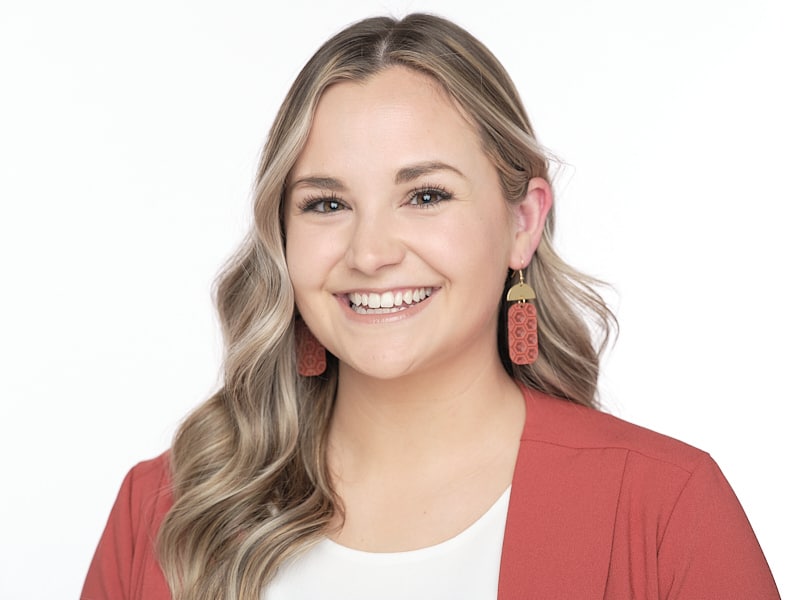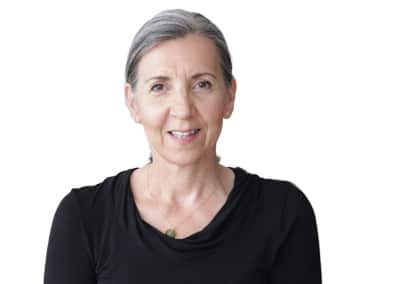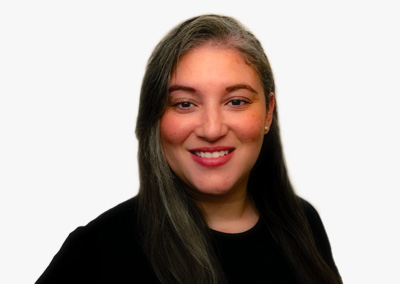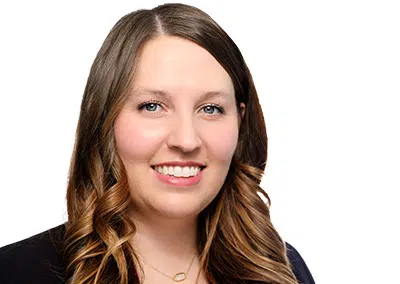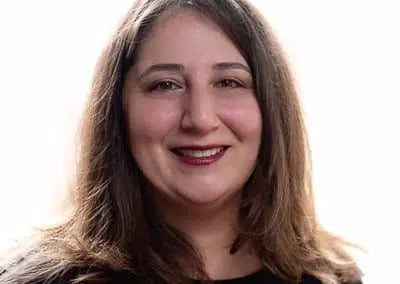
Questions About Therapy:
What to Talk About in Therapy

Dr. Lisa Marie Bobby is a licensed psychologist, licensed marriage and family therapist, board-certified coach, AAMFT clinical supervisor, host of the Love, Happiness, and Success Podcast and founder of Growing Self.
Takeaways: So… what should you even talk about in therapy?? It’s a question that everyone asks themselves, especially when they’re starting out on their therapy journey. Learn about the most productive topics to talk about with your therapist, and how what you choose to talk about can shape your results.
- Your feelings.
- Your family of origin.
- Your blindspots.
- Mental and physical health
- Your goals
- Your therapist’s conceptualization
- Your progress
- Things you don’t want to talk about
- How to get the most out of therapy.
If you’re finding yourself uncertain about what to talk to your therapist about, you’re not alone. Many people aren’t sure how to talk to a therapist, whether they’re just starting and aren’t sure what to expect from the process or have been in therapy for a while and feel stuck. Since so much of therapy is talk-based, it’s easy to feel pressure to talk about the “right” things.
While there are no “right” or “wrong” things to talk about in therapy, some things are actually more productive to talk about than others. You started therapy with specific goals and priorities, and it’s essential to keep those goals front and center. That’s how therapy works.
Below are some tips on what to talk about in therapy to ensure you’re getting the best out of your sessions. I’ve included some general advice on things that are common to talk about in therapy (dreams, family of origin, etc.) as well as some “process” things that are incredibly essential to the success of therapy — but that many people don’t know about.
Read on, to get the inside scoop on the things you should absolutely be talking about in therapy — including some that may surprise you.
How to Talk to Your Therapist About… You!
You and your personal growth is the most obvious main topic of therapy, but that can actually also be why it’s the hardest at times. While some people find it effortless to talk about and analyze themselves, other people find it far more difficult and can shut down before progress is made.
Also, just FYI, if you feel like you don’t have space to talk about yourself… that is a major red flag. I had a conversation with a colleague the other week who had a new client who came to us after experimenting with one of those therapy-mill online therapy outfits (not naming names), and my colleague told me that the client said, “With the last therapy I tried, I wound up knowing way more about that therapist and her life than she knew about mine.” That is not okay!
The mental health field can attract people who have their own stuff to work through. If your therapist is sharing way TMI about their own life, or their opinions, that is not fair to you. Therapy is your place to talk about you, not smile and nod politely and try to get a word in edgewise. More on how to find a (good) therapist, and avoid a bad one if you’re interested.
So, assuming that there is space for you to talk about yourself in therapy, let’s turn our attention to some of the most helpful and productive things you can talk about with your therapist.
In this next section, I’ll provide some helpful tips with simple things you can begin talking about that will help your therapist (and you!) understand your inner life.
Talk about your feelings in therapy
There’s usually an emotional catalyst for starting therapy. This can be a specific trauma, like losing a loved one, or infidelity. It can also just be a vague feeling that something is “off” or that you’re stuck in life.
A good thing to discuss with your therapist every session: What are you feeling? What do you think has caused you to feel this way?
It’s quite likely that your feelings will change from session to session, and this can always serve as a good place to start the conversation. Trusting yourself to follow your feelings can lead you to your goals faster than just following the prescribed path. Your feelings can also help you realize if a certain therapy practice just isn’t working for you. If a certain practice has you feeling worse every session, let your therapist know!
The only caveat here is that it should feel productive. If you find yourself getting caught in an endless loop of talking about your feelings without any progress toward self-acceptance and a happier life, focus more on goal-oriented topics.
Talk about your family of origin and significant life experiences
This is one of the most classic topics of talk therapy – and for a good reason. Everything you’ve gone through in your life – the good, the bad, the challenging – has contributed to your personality and the way you handle things today.
Talking about your family of origin as well as some of the hardest things from your past can be profoundly illuminating in understanding more about yourself. As you go over events and memories that you may not regularly say aloud, you’ll start remembering more. And although talking is not curative by itself, the insight gained from diving deep into your past can help generate new insight and acceptance.
Sometimes people can feel weird or bad about doing this, like talking about difficult parents or loved ones is disloyal. But your therapist is here to help you understand how your life experiences shaped you, in order to help you understand yourself, and others, and grow as a person.
Being honest with yourself about your past and how it’s shaped you, for better or worse, helps your self development in positive ways, and often results in having more compassion, empathy and appreciation for the people in our lives — as well as stronger, healthier relationships.
Let’s Talk.
Schedule a Free Consultation Today.
Ask your therapist to help you identify your blind spots
Have you ever felt like you’re better at giving advice to others than you are at helping yourself? If so, you’re far from alone. The reason for this nearly universally shared experience is that we all have “blind spots.”
When you’re learning to drive, you’re taught to always check your blind spots, where your mirrors can’t quite reach, so you can avoid collisions and danger. Psychologically speaking, blind spots are aspects of our personalities that other people can see but that we cannot, and are just as important to check with care.
We all have blind spots. We have patterns of thinking and acting that we’ve gotten used to and stopped examining. Almost inevitably, some of these thoughts and actions do not serve us as well as we’d like them to.
As you tell your therapist about events and relationships in your life and how you react to them, they may offer up information about your blind spots. If they don’t, or if you’d like more input, feel free to ask your therapist if they see any blind spots. You can’t work on what you can’t identify, and having someone point out a blind spot compassionately and constructively can go a long way, even if it can be quite painful to acknowledge.
While therapy should always be an emotionally safe space for you, your therapist is also there to promote your growth. Being lovingly challenged to recognize things that you may not have seen before is an important part of the development of self-awareness, which in turn, empowers you to actively make positive changes in your life and build self-love.
It is also absolutely okay to disagree with your therapist, as well! If they reflect something back to you that does not feel like “your truth,” let them know. Remember, you know you better than anyone else. Your therapist is there to help you grow as a person, not tell you who you’re supposed to be.
Talk to your therapist about your mental health symptoms
Many people seek therapy to help with mental health issues. They may be at the forefront of your conversations with your therapist already, but they might not. If mental health issues and symptoms of those issues are a primary concern for you, make sure they don’t get lost in the shuffle. It can be easy to talk to a therapist about the latest stressors or annoyances, but focusing on big-picture mental health will make everything feel better and easier, overall.
Think of it like the difference between weather and climate. The weather can change day to day, and week to week. This is like how you feel on any given day, depending on the circumstances of your life and what’s going on around you. But the climate refers to long term trends — this is like your overall mental health.
So, for example, if you’re dealing with a mental “climate” of anxiety or depression, you’re going to feel overwhelmed and stressed out week to week in general. It would be a mistake to get preoccupied with the details of the latest event in therapy, rather than have your therapist’s assistance with the big picture practices that can help you take good care of yourself and change your “emotional climate.” This is what will help you develop resilience and wellness, no matter what life throws at you.
Tell your therapist about any physical health issues or concerns
Let’s label this one as mandatory. People often make the mistake of separating their mental wellness from their physical wellness, but in many ways, mental health IS physical health. If you suffer from chronic pain, for instance, it can be easy to get into a funk or even slip into despair and depression.
It’s so, so common for people to seek therapy for things like depression and anxiety without having any awareness of the possibility that their physical health is directly causing their mental health symptoms. Talk about your lifestyle habits with your therapist; things like diet and sleep are profoundly linked not just to the way your body feels – but how your mind feels, as well.
The best therapist in the world won’t be able to help you feel better emotionally, if the underlying causes of your issues are stemming from your physical health rather than your mental health. Small examples: Did you know that common things like sleep apnea, or using asthma inhalers regularly can essentially mimic the symptoms of ADHD? Or low iron levels can make people feel (and behave) like they have major depressive disorder?
If you have any ongoing physical health issues and concerns, tell your therapist. They might be contributing to how you think and feel but they might also impact the way your therapist helps you. Don’t keep these things to yourself.
Let’s Talk.
Schedule a Free Consultation Today.
Talk about your dreams!
One of the best things to talk to your therapist about is that hidden subconscious life that you inhabit when you go to sleep every night: your dream life.
Even today, dreams are largely mysterious to us. Sometimes, the contents of our dreams can seem totally random, but many times, it’s our subconscious’ way of working through issues we may be having that we don’t even know about. That’s why bringing up your dreams and discussing them with your therapist might be a good use of your time.
Talk to your therapist about your goals for therapy
“How can I get the most out of therapy?” is one one of the most common therapy questions, and the answer is to have clear goals before you even get a therapist. However, that doesn’t mean you’re doomed to fail if you don’t have a detailed strategy; Most people struggle with goal-setting, and a therapist can actually help you create and cement your goals! Use your first therapy appointments to clarify your more nebulous goals and set plans to achieve your more concrete goals.
If you’re totally stumped about your goals for therapy, you’re not alone. Here are some helpful jumping-off points to help you think about what your goals might be:
- Why did you decide to get therapy?
- When your sessions are done, what will have changed for you?
- What are the specific issues you want to get help resolving?
Is there something specific that’s been nagging at you all week? Lead with that in your next session! Even if it has nothing to do with your overall goals for therapy, working through specific issues you’ve had throughout the week can teach you the problem-solving tools you’ll need to tackle your more concrete goals.
Whenever I start a therapy or coaching session, my first question for my client is, “What would be most helpful for us to discuss today?” You’ll get the most out of therapy if you give that question some thought before you meet with your therapist so that you can make sure your priorities are being addressed.
Talk to your therapist about their conceptualization
After you and your therapist have gotten to know each other a bit and spent some time discussing your situation and your goals, it’s time to start talking about what progress looks like.
Competent and effective therapists will work quickly to build a case conceptualization for you. “Case conceptualization” is just a fancy term to describe your therapist’s understanding of your own personal obstacles, how to help you with them, and what success will look like. Ask your therapist to share this with you to be sure that your idea of progress aligns with theirs.
You’ll also want to ask your therapist about their thoughts of where you are in the change process and where this is headed. Getting into alignment with your therapist about what “the problem” is and what needs to happen for you to make progress is one of the most important factors in your personal growth journey.
What to Talk About in Therapy: Your Progress
One of the biggest myths about therapy is that just talking about how you feel helps you heal and grow. While that is certainly part of the process, it’s not as simple as that. In fact, one of the main criticisms of talk therapy is that just venting to your therapist week to week about random things can actually be counterproductive.
While therapy does certainly need to be a safe container for you to explore your thoughts and feelings, there should also be at least some direction or purpose to the work. Just answering the question, “How does that make you feel?” over and over again, starts to get old after a while — especially if it doesn’t lead to forward movement. Introspective, non-directive and insight oriented talk therapy can be incredibly valuable in some situations, but not all. There are many types of therapy and types of therapists, and if you need a more active, goal focused approach (which is often easier to find in coaching versus counseling), simply talking about how you feel from week to week can lead you (understandably) to assume you have a bad therapist, or that therapy is a waste of time.
It isn’t! But, in order for it to be genuinely meaningful and helpful to you, it’s essential that you are an active part of the process, and empowered to direct the work towards where you need it to go.
While insight and self-awareness are helpful, you should be working towards something in therapy. If you feel like you’re not progressing, no matter how often you talk to your therapist, trust your gut and advocate for your growth. If you’re feeling like therapy isn’t moving forward, it’s really important that you tell your therapist so that they know, and can shape the experience of therapy for you.
I am a therapist and I absolutely adore my clients. I genuinely care about them and want to help them. And, I’m also very aware of my role in their lives. Though many of my clients are people I would be friends with under different circumstances, and as much as I enjoy talking to them, I am not their friend. Your therapist isn’t your friend.
We are here for a purpose and that purpose is to help you grow. Here’s what your therapist wishes you knew: We love it when clients give feedback that helps us help them.
I encourage you to regularly analyze goals and discuss your progress towards them with your therapist, especially if you feel that your work in therapy may have veered off course, or is starting to feel unfocused.
Let’s Talk.
Schedule a Free Consultation Today.
Talk to your therapist about their approach
Far too many people continue attending therapy feeling that they’ve hit a standstill, but being afraid to speak up about it. Again, this is understandable. After all, the therapist is the one with all the education, training, and experience; they must know what they’re doing. Right?
Wrong.
Along with finding the right therapist and ensuring that they use evidence-based approaches, being an active participant in your own growth is the best way to help yourself achieve your goals for therapy.
Even effective, well-intentioned therapists can be unsure of how to help their clients, especially when communication is evaporating into avoidance. Many people report that they go through the same experience of continually discussing the events that transpired between sessions without making any progress. If you find this is your situation, tell your therapist that it’s time for them to help you steer the conversation back towards your goals and progress.
If you’re just showing up, going with your therapist’s flow, hoping that it works out, you won’t be able to make the progress you deserve. Speaking up, advocating for yourself, and providing your therapist with feedback and even criticism when appropriate is the best way to make sure that your needs are being met.
Good therapists utilize a number of different approaches depending on your unique needs and unique scenarios. Some people respond better to certain approaches than others. Part of moving your therapy in the right direction involves you and your therapist getting on the same page about what feels helpful and what doesn’t. For this to happen, you’ll need to speak up.
Feel free to go ahead and tell your therapist, “It doesn’t feel helpful when you simply ask me about how my week was,” for example.
At the same time, you can tell your therapist when you particularly like some approach they’re taking and encourage them to use that approach more.
It is your right to speak up if you feel that your sessions are unproductive. No therapeutic path is right for everyone, and you’re not doing something wrong if something isn’t working for you.
Tell your therapist how you feel about them
In addition to providing your therapist with feedback about what’s helpful and not helpful to you, it’s important to tell your therapist how you feel about them, especially if you’re having feelings of avoidance, irritation, or embarrassment. I know this sounds cringey, but trust me — this is where the action is, and can lead to hugely powerful growth moments for you.
If you’re worrying that your therapist will be annoyed with you, or dismissive of you if you ask for what you need, tell them! Your therapist is there to help you heal and to develop self-esteem, not to judge you, and if you’re holding things back from them out of feel, you won’t be able to make as much progress as you otherwise could.
Be fearless, and say how you feel. We need to know! But even more importantly, speaking up assertively and authentically with your therapist about how you’re feeling in your relationship with them IS THE WORK. It’s basically training wheels for being able to be assertive and have healthy boundaries with people in other parts of your life.
Also, if your therapist has said something that rubbed you the wrong way, or felt invalidating, or minimizing, or hurt your feelings, it’s vital to share that openly. We’re humans, and we say the wrong things sometimes! We’re also trying to have a real relationship with you that is devoted to your growth. Telling us how you feel about us can be not just good for your work in therapy, it can be a really powerful growth experience that leads to positive changes and greater security in your other relationships too.
Consider this: The way you unconsciously relate to your therapist can be the way you relate to people in general. Issues you have with us are going to feel familiar. But working through these feelings with us is how to change your patterns in all of your relationships.
If you need therapy, it’s likely that your therapist is one of the most non-judgmental and unconditionally accepting and supportive people in your life. Having emotionally safe relationships with people is what we do! So your therapist is a safe person for you to practice being authentic and assertive with, and it also gives you a chance to gain awareness about your patterns.
Furthermore, telling your therapist about how you feel about them allows you to understand how you habitually feel in many of your relationships. For example, if you worry that your therapist is going to judge you, or reject you, or become angry with you, or dislike you — say that to them. It can shed a lot of light on your attachment patterns and other ingrained styles of relating.
I have clients who have had huge breakthroughs in their personal growth work when they’ve had the courage to tell me that they were afraid of my reactions to them, and that it was keeping them from being fully honest with me. Once they did, and we could talk through it, it helped them understand that they were projecting (on to me) the fears that they have with many people in their lives — and how their assumptions are often untrue. It also allowed them to become more honest with me, and more vulnerable in our relationship. They could then open up about aspects of their experience that they’d formerly felt a lot of shame around, and this was really healing for them.
Your relationship with your therapist is a professional relationship with unique boundaries, but it’s still a real relationship. When you and your therapist can address the relationship you have together, openly and honestly, it can lead to incredibly powerful growth work.
Talk to your therapist about your boundaries
It may sound contradictory after emphasizing goals and progress, but there are some cases in which therapists may push their clients to move past feelings they’re not ready to move past yet. Especially when grief and loss are involved, the real value of a therapy setting might be its function as a “container” or “safe space.”
Many people who’ve lost loved ones, for example, find it difficult or frustrating to talk about their loss with close friends and family members. They may simply want someone to listen and be there, but often, other people don’t know how to help and try their best to give practical, productive advice. Then, if they go to therapy seeking a container space where they can sit and feel their loss and the therapist also starts trying to “fix” and “resolve their symptoms,” the frustration and helplessness are multiplied.
Just like it’s okay to ask your therapist to provide you with a more structured or active approach, it’s also okay to say, “What I need from you today is just to sit and listen while I talk through some things. Please help me process this.”
If you’re in any situation in therapy where your therapist is trying to push you to make progress but you’re simply not ready, tell them!
Let’s Talk.
Schedule a Free Consultation Today.
Tell Your Therapist About Things You Don’t Want to Talk About
While it’s common to have the belief that people in therapy divulge everything to their therapists, this is not often the case. Many people regularly attend sessions to discuss things they want to make progress about while dealing personally with issues that they’re either not ready to address or simply don’t want to address at all. This is totally OK. But it’s still important for your therapist to know about the fact that those issues exist — even if you don’t want to do anything about them right now.
Let’s talk about a hypothetical person named Steve. Steve is working through relationship and career issues but also smokes a lot of cannabis. Steve’s well aware of his substance problem, but does not want to talk about it in therapy. Rather than being forced to talk about it – or keeping the problem a secret entirely – Steve might find the best temporary solution to be saying to his therapist, “I need to tell you that I’m smoking a lot of pot lately, but that’s something I don’t want to talk about here.” With a statement like that out in the open, Steve’s therapist can be aware of this other issue while understanding and respecting Steve’s boundaries.
So if there’s something that you don’t want to talk about, bringing it up even without the intent to discuss it further can be very beneficial – for you, your therapist, and your progress.
Talk to your therapist about not having anything to talk about
If you don’t have a clear purpose for therapy anymore and don’t feel like you have specific things you’re working on or working towards, maybe it’s time to take a break from therapy.
If you enjoy talking to your therapist about what’s going on in your life week to week, and you have the resources to do that just because you like it, that’s great.
But if you’ve really run out of things to talk about, maybe that’s a sign that your work has been successfully accomplished! You don’t need to stay in therapy for years on end, and you can always come back if you need to. I have numerous clients who I have seen episodically over the years. They show up when they need my help with something, we get to the other side, and then eventually, when I ask them what we should focus on, I can tell that they’re digging around for ideas. They’ll say, “I don’t know? I felt kind of annoyed with my mom the other week?”
An ethical therapist will say, “Or maybe you’re in a really good place, and there’s not much else left to do in this chapter of our work? I’m happy to talk to you about your mom if you’d like. Still, maybe today’s session would be better spent talking about all the great work you did to get here and how to keep it going on your own once we stop seeing each other?”
In short, good, ethical therapists are here to help you not need them. Legitimately not having anything to talk about in therapy is a good sign that they’ve done their job well.
How to Get the Most Out of Therapy
The relationship you have with your therapist should be one of open, honest communication. If you’re finding it’s hard to talk to your therapist, or you’re running out of ideas to talk to your therapist about, it’s important to let them know. Not having anything to talk about in therapy isn’t a sign that you’re doing something wrong; in fact, it could be a sign that your therapy has taken effect!
I hope these tips about what to talk about in therapy help you progress in your personal growth journey!
Yours sincerely,

Dr. Lisa Marie Bobby is a licensed psychologist, licensed marriage and family therapist, board-certified coach, AAMFT clinical supervisor, host of the Love, Happiness, and Success Podcast and founder of Growing Self.
Meet a Few of Our
Expert Therapists
Meet Our Team
Linda P.
M.A., LMFT
Thriving Personal & Professional Relationships
Meet Linda: a relationship expert and certified emotional intelligence coach with a unique blend of professional experience as a marriage counselor, executive coach, leadership coach, life coach, and therapist. She's here to help you understand yourself and others, improve your communication, increase your emotional intelligence, and cultivate positive relationships — both personally, and professionally.
Silas H.
M.S., LMFT
A Partner in Growth for Individuals & Couples
Meet Silas: a couples counselor, therapist, and life coach with an easy-going, humorous, and down-to-earth style that makes personal growth work both enjoyable and effective. His tireless support, encouragement, and expertise help you stay motivated to make real and lasting change in yourself and your relationships.
Dr. Rachel D.
DMFT, LMFT
Expert Care for Your Relationship
Meet Dr. Rachel: a relationship coach and marriage and family therapist with a warm personality and productive approach. She helps you and your partner restore trust, deepen intimacy, reconnect emotionally, and transform your shared life through the healing power of a healthy partnership.
Talia R.
M.S., MFTC
Straightforward, Open-minded & Action-Oriented
Meet Talia: a relationship specialist whose warm, collaborative approach guides you toward deeper exploration, connection, and understanding. With her authentic and straightforward style, she can help you gain the clarity and skills to cultivate the life and relationships you desire.
Jenna P.
M.A., LPC, LMFT
Insightful, Welcoming & Productive
Meet Jenna: a supportive marriage counselor, couples therapist, individual therapist, and life coach with a friendly, light style and a great sense of humor. She uses effective, evidence-based techniques to help you build understanding for yourself and your partner, increase intimacy and connection, and achieve your most important goals.
Emily B.
M.S., LMFT
Dedicated to Your Empowerment
Meet Emily, a couples counselor, relationship coach, individual therapist and life coach with a positive, empowering approach to helping you create the change you desire. Emily believes that we each have the seeds of wisdom inside of us — and that with the right support, you can cultivate greater well-being, love, and success.
Dr. Ben J.
Ph.D., LMFT, LCMFT
Healthy Relationships, Happy Life
Meet Dr. Ben: a couples counselor, premarital counselor, individual therapist, and life coach who helps you activate your inner strengths to create better relationships and a fuller life. His collaborative, friendly style makes him easy to talk to, and his action-oriented mindset helps you get results.
Kanya D.
M.A., LMFT
Inspired Life, Inspired Love
Kanya is a licensed marriage and family therapist, individual therapist, life coach, and parenting coach with more than 20 years of experience helping couples develop deeply loving and satisfying relationships, helping parents and families thrive, and helping individuals reclaim their happiness.
Dr. Paige M.
PhD, LMFT
Kind, Encouraging & Insightful
Dr. Paige is a friendly and enthusiastic therapist who is passionate about you living a meaningful, joy-filled life based on your true values. She's a big believer in the transformative power of vulnerability — and helping you build a brave space where you can connect deeply with the people you love most.
Kensington O.
M.S., LMFT
Compassionate, Present, and Supportive
Meet Kensington: a couples counselor, premarital counselor, individual therapist, life coach, and breakup recovery counselor. With compassionate understanding and unique insights, Kensington helps you move past the past and improve the most meaningful parts of your life — from your emotional well-being to your relationships.
Georgi C.
M.S., LMFT
Nurturing Healthy Families & Happy Relationships
Meet Georgi: a warm, compassionate, Arkansas-based marriage counselor, individual therapist, and family therapist who creates a safe and supportive space for you to find meaning in your struggles, realize your self-worth, and cultivate healthy connections with the most important people in your life.
Elizabeth B.
M.A., LMFT
Emotionally-Focused, Authentic & Understanding
Meet Elizabeth, a couples counselor and individual therapist who uses evidence-based approaches in her emotionally-focused work with clients. She believes in your potential for profound healing and growth. She will help you cultivate self-compassion and emotional wellness, so you can build the life and relationships you deserve.
Roseann P.
M.S., LMFT
Open Heart, Wise Mind
Meet Roseann: an empathetic and intuitive marriage and family therapist, individual therapist, and life coach. Through authentic connection and a down-to-earth demeanor, Roseann guides you toward clarity and well-being. Using mindfulness and values-driven action, she helps you overcome challenges and create fulfillment in all aspects of life.
Alejandra P.
M.A., LMFT
Dynamic, Transformative & Compassionate
Alejandra is a true expert at nurturing your positive transformation — helping you to find happiness in your life and fulfillment within your relationships. She will help you break free from old patterns that are getting in the way of the life you want, and then chart your pathway to achieving your most important goals.
Brittany S.
M.A., LMFT
Compassionate Care For You & Your Relationships
Meet Brittany: a couples counselor, individual therapist, premarital counselor, and a life and relationship coach with a warm, authentic, emotionally-focused approach. She works with you to build deeper connections, restore emotional bonds, and grow in your capacity to love and be loved.
Tania C.
M.B.A., M.A., LMFT (she/her/hers)
International Love, Life, & Career Coach
Meet Tania: a relationship coach, career coach, dating coach, and executive coach with a unique blend of experience, education, and training, and a nuanced cross-cultural perspective. As a relationship expert and a career expert, Tania can help you build passionate and fulfilling relationships while thriving in your professional life.
Meagan Terry
M.A., LMFT
The Relationship Specialist
Meet Meagan: an experienced Licensed Marriage and Family Therapist who specializes in helping you create happy, healthy, joyful relationships. She's an expert marriage counselor, emotional intelligence coach, premarital counselor, and dating coach who uses effective therapeutic approaches to help you create a lifetime of love.
Ronni M.
M.A., LPCC
Illuminate Your Possibilities
Meet Ronni: a career counselor, life coach, and individual counselor with a caring personality and a flare for adventure. Whether you want to embark on a new career path, work on personal growth goals, or pursue greater life satisfaction, she’s here to support and motivate you to create positive change.
Dr. Tuyet
Ph.D., LMFT
Committed to your Happiness and Success
Meet Dr. Tuyet: a highly compassionate and experienced licensed marriage and family therapist. Dr. Tuyet uses an evidence-based approach to equip you with the tools you need to build the life and relationship you really want. She will empower you to dig deep, take risks, and weather life's transitions with ease and grace.
End of Members
No more pages to load
The therapists and life coaches of Growing Self have specialized education and training and years of experience in helping people achieve their personal and professional goals. We use only evidence based strategies that have been proven by research to help you get clarity and direction, have better relationships, feel happier, and design your ideal life.
This website is devoted to your wellbeing, and offers loads of free information and actionable advice that you can start using today to create positive change in your life. Browse around to meet our experts, get free advice on our blog, listen to a podcast, or take our “How Healthy is Your Relationship” quiz.
Or, if the time is right, you can schedule a free consultation with any of us to talk about your situation — and, most importantly — your hopes for your future.
Let’s Talk.
Schedule a Free Consultation Today.
Therapy Questions, Answered.
Support For Your Growth
Our expert therapists have generously created an entire library of articles, activities, and podcasts to support you on your journey of growth. Please visit our “Happiness Collections” to browse our content collections, and take advantage of all the free resources we have for you. Or, if you’d like to educate yourself about the process and logistics of therapy, please help yourself to our “therapy questions” knowledge base below. It’s all for you!
Do I Need Therapy?
Wondering if your issues going to work themselves out, or is it time to talk to a professional? Here’s how to tell when it’s time for therapy.
Therapy Works, But How?
Great therapy can feel like magic, but it’s actually not. Learn how meaningful and effective therapy works.
What is Therapy Like?
What is therapy like? Learn what happens in therapy in order to feel empowered and confident.
What Kind of Therapist Do I Need?
There are many different kinds of therapists and many different types of therapy. What kind of therapist do you need? Find out!
What To Talk About in Therapy
Not sure what to talk about in therapy? Here are some tips to ensure you get the most out of your therapy sessions.
Therapy Consultation: What to Expect
How to prepare for your first therapy appointment, and learn what to expect in therapy sessions.
Coaching vs Therapy
What’s the difference between coaching and therapy? Find out which approach is right for you.
What is Cognitive-Behavioral Therapy?
Cognitive-behavioral therapy is the “gold-standard” of effective, evidence-based therapy. Learn about CBT.
What is Talk Therapy?
How does talking about something help you make changes? Or… does it? Learn the pros and cons of traditional talk therapy.
Why Evidence-Based Therapy Matters
Effective therapy is life-changing, but some therapy is a waste of time and money. Evidence-based therapy makes the difference.
How to Find a (Good) Therapist
Not all therapists are the same. Learn how to find a good therapist (and spot the warning signs of a bad one).
Therapy For Healthy Relationships
Working with a true relationship expert helps you learn, grow, love, and be loved.
Learn about our approach to helping you build healthy relationships.
Guide to Online Therapy
Online therapy is just as effective but even easier than in person therapy. Here’s what to expect from good online therapy.
Denver Therapist
Explore your options for a Denver therapist who specializes in personal growth and healthy relationships.
How to Get a Therapist
Ready to try therapy? Here’s a comprehensive guide on how to get a therapist who is competent to help you.
Therapy Reviews
Curious to know more about what working with us is really like? Browse Growing Self reviews / “best online therapy reviews” from our clients.
How Much Does Therapy Cost?
Good therapy is priceless, but not all therapy is valuable. Learn the cost of therapy that’s affordable and effective.
Does Insurance Cover Therapy?
Yes, insurance covers therapy… but only sometimes. Learn when (and how) health insurance covers therapy, and when it doesn’t.
Help Someone Get Help
If you have a loved one who is struggling in their relationship, you can help them get help by “gifting” therapy. Here’s how…
Divorce & Breakup Recovery
Losing a relationship is uniquely painful and challenging. With the right support, you can heal, grow, and move forward. Learn about our divorce and breakup recovery services.
More Questions? Let’s Talk.
We’re available by phone, email and chat, and happy to answer any of your questions personally. Get in touch, anytime.
Start Therapy
Start your journey of growth today. Get personalized recommendations, and have a free consultation meeting with the therapist of your choice.







